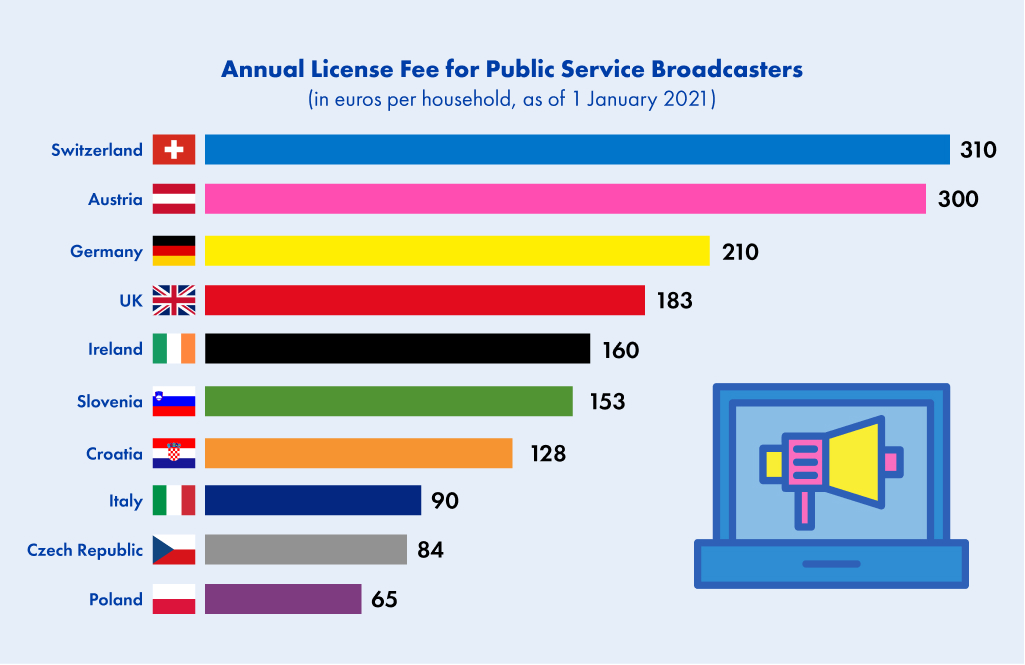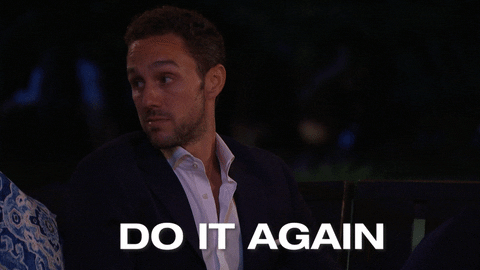Issue #118
Guten Morgen! Welcome to another edition of the Krautshell! This week, our esteemed guest contributor and President and CEO of the German Council on Germany, Dr. Steven E. Sokol, provides some in-depth analysis of current German foreign and defense policy – specifically, the proclaimed Zeitenwende – in his House’s View. In addition, our main articles cover the recent surprise twist following the February state elections in Berlin and the blockade of a planned EU ban on internal combustion vehicles by Germany’s governing Liberals. Finally, enjoy Anna’s tribute to Berlin’s (probably) outgoing mayor, who made the rare decision to step down rather than cling to power in the face of electoral defeat. Have a great weekend! Anna Christian News From The Capital City A few weeks after the CDU victory in the Berlin state elections (we predicted), the first exploratory discussions between the parties are over and it seems we will have a grand coalition in Berlin. That means, still-mayor Franziska Giffey (SPD) will hand over her office to Kai Wegner (CDU) and become junior partner. For the Social Democrats this is of course not nice but seemingly a better option than continuing the center-left coalition with the Greens and the Left for which they theoretically have enough seats in the parliament. However, with the CDU being the clear winner of the election with a 10%-lead ahead of the SPD, this would have been a tough sell for Berlin voters who clearly demanded change. As SPD and CDU have quite some common ground in political topics (acknowledged by Giffey), going in as a strong “number 2” showing you’re humble enough might look better than being a weak number 1 that desperately holds on to power it doesn’t really deserve. Unfortunately for Giffey and her plan, the SPD in Berlin is very left-leaning with a strong party youth organization (the so-called “Jusos”) who already announced to advocate heavily against a coalition with the conservative CDU. When the coalition treaty is negotiated, the SPD members will be asked to vote deciding whether the SPD goes this way or not. The Jusos and the left-leaning members of party will try to prevent the coalition, while still-mayor Franziska Giffey will try to convince her members to swallow the pill and go in as junior partner. The Liberal Blockade Quite some months ago, all 27 Member States of the European Union decided they wanted to promote the phasing-out of cars with combustion engines until 2035 – it’s negotiated, the official adoption is set for next week. Getting a compromise like this between 27 Member States is a connected with a sh*tload of work, negotiations and so on. Now, the FDP, the liberal junior partner in Germany’s traffic light coalition, decided to expand their blockade of several policies of their own government (intended for a sharpening of party profile after some lost state elections) to the EU level and torpedo the deal. This is primed to become an embarrassment for Germany and is therefore a serious threat for the Chancellor. Germany is the land of the car manufacturers, so while we like to be seen as climate protection advocates, we suddenly become very cautious when it is about cars. The FDP’s desire is to get an exemption in the deal that allows news cars with combustion engines after 2035 if they run exclusively on e-fuels. The idea behind this is generally sensible: politics should only set the target of net zero emissions but don’t dictate the way towards it. Only this concrete proposal seems utterly weird given that to the best of our knowledge no car manufacturer currently plans on implementing combustion engines for e-fuels, just because it’s not practical and too expensive as the creation demands a lot of electricity which we could directly use to power (you guessed it) electric cars. E-fuels will most likely be needed to run older cars with combustion engines, however, no car manufacturer seems to plan with them for new cars. Advocating for openness in technology usage is great, torpedoing a complicated deal just to prove some point is maybe not the best idea. Source: Politico THE (GUESS) HOUSE’S VIEW: by Dr. Steven E. Sokol, President and CEO of the American Council on Germany One Year into Germany’s Zeitenwende Last weekend was bookended by the one-year anniversary of Russia’s unprovoked invasion of Ukraine on Friday and the one-year anniversary of Chancellor Olaf Scholz’s Zeitenwende speech on Monday. We are now more than one year into the war in Ukraine, and there is no sign of it ending any time soon. At last month’s Munich Security Conference, there was some dissonance between the full-throated declarations of support for Ukraine and of western solidarity on the main stage and the hand-wringing in the hallways and on the sidelines of the conference about how long the solidarity would hold – and how this would end. That’s the thing about the fog of war, we don’t know how this will end – but we can do more to ensure that Ukraine wins. Scholz’s Speeches to the Bundestag Just before leaving for Washington for a meeting with President Joe Biden, Chancellor Scholz delivered a speech before the Bundestag. It is interesting to compare this speech with the one he gave on February 27, 2022. The Zeitenwende speech was more than a policy pivot in foreign, security, and energy policy; it was a fundamental recognition that things will not be the same as they were before the war. In it he set the trajectory for a monumental shift in policy for Germany moving forward. In comparison, Thursday’s speech was a reflection on what Germany has done in the past year – but, it was not forward-looking. Chancellor Scholz did, however, use the opportunity to criticize China for not condemning Russian aggression against Ukraine. He recognized that Beijing’s recent 12-point peace plan for the “Ukraine crisis” (not a war in China’s eyes) sends a clear message against the use of biological, chemical, or nuclear weapons of mass destruction — but also chided China for not discussing its peace plan proposal with Ukraine whose territory was invaded and is occupied by Russia. The proposal favors Russian interests without taking those of Ukraine adequately into consideration. After Russia and Ukraine, relations with China are likely to be at the top of the agenda when President Biden and Chancellor Scholz meet – particularly in light of U.S. concerns about China potentially supplying lethal weapons to Russia. (we’ll know more about the visit when the Chancellor’s interview with CNN is aired on Sunday.) Identifying Three Challenges The symbolism of the Zeitenwende speech cannot and should not be underestimated. Yet the two speeches a year apart highlight three challenges Chancellor Scholz — and thereby Germany — is struggling with: communication, implementation, and leadership. Despite the speeches by Scholz – before the Bundestag and elsewhere – the arguments for supporting Ukraine and Germany’s policy pivot are falling flat. A stronger, more compelling case must be made. On the sidelines of the MSC, several Bundestag members said that they find it difficult to convince voters in their electoral districts that more is at stake than the future of Ukraine. One must recognize that Germany has come a long way over the past 15 months, but an open question is whether Germany will live up to the promises laid out in the Zeitenwende speech and how long that will take. For example, after promising to spend two percent of GDP on defense, the government is now walking that back. Very little has been spent of the 100 billion Euro special fund to modernize and upgrade the Bundeswehr. The Ministry of Defense has said that roughly 30 billion Euro has been earmarked for purchases – but the procurement process is not functioning efficiently. When gauging the implementation of the ambitious plans, watch for when (and if) Germany crosses the two percent threshold and its defense spending to modernize the military. Giving credit where credit is due, on energy Germany has cut its dependence on Russian oil and gas and made a massive commitment to renewables. The war has given a new impulse for Germany’s Energiewende and the goals outlined in the coalition agreement – despite ramping up the use coal and other fossil fuels to power Germany’s economy in the short-term. When it comes to leadership – and, of course, Führung is a sensitive word in German – Chancellor Scholz has been careful not to get ahead of his allies. For one Bundestag member I spoke with in New York last week, leadership does not mean going it alone; it means bringing other countries along. He sees the tank debate as a positive sign. A total of 88 main battle tanks are slated for delivery from 11 countries, but Germany will be the first to deliver (14) along with Portugal (3) and Canada (1) in the coming weeks. But questions remain, could this have been worked out sooner and was Scholz trying not to get ahead of the allies or were the allies responsible for finally getting Germany to act? There are missed opportunities for Germany to show leadership – and one of those is Chancellor Scholz’s reluctance to say that Ukraine should win. He is clear that Russia must fail in its act of aggression but does not seem able to bring himself to say that Ukraine must win this conflict. Perhaps he is taking a prudent position. After all, he has said that Germany will not reduce its support for Ukraine, but at the same time do everything possible to prevent a direct confrontation between Russia and NATO. A Waning Sense of Urgency? At the Munich Security Conference, there was a strong sense that time is running out for Ukraine and that the war needs to be concluded soon. This relates to Ukraine’s ability to withstand further onslaughts but also concerns waning solidarity and support the longer the war continues (and the closer we get to the 2024 U.S. presidential election). Discussions also centered on what a security guaranty for Ukraine should look like and post-war reconstruction. Germany has provided significant support to Ukraine and will be critical to Ukraine’s future. The Chancellor is often criticized at home and abroad for waiting until the last minute to make decisions – and then only does so after massive international pressure. This makes it seem like he has been dragged reluctantly to certain decisions, instead of showing strong leadership. Leadership means taking unpopular actions and convincing the public why certain measures are necessary. Yes, Germany is doing more militarily than it ever has since the end of WWII, but Chancellor Scholz would be well advised not to follow public opinion, but to shape it by making the case, both within the government (i.e. the Defense Ministry) and with the German public, for why victory for Ukraine matters and why Germany must act quicker with its support. In the spirit of the Zeitenwende, Germany is not the country it used to be, but it is not (yet) where it needs to be. Kudos to the Mayor Three weeks ago, Berlin voted on the future of one of Berlin main intersections and shopping areas, the Friedrichstrasse. Well, not exclusively; actually, Berlin was electing a new state government after the last election in September 2022 was declared void by the Berlin Constitutional Court. The results? Unsurprisingly surprising. Out of the opposition the CDU gained 10.2 %, while the governing parties lost, especially the mayor’s SPD, who received the worst result since WWII. The result was unsurprising, because Berlin is in a really bad state, so punishing the governing parties makes a lot of sense. Surprising still, because Berlin with its left and green tendencies failed to do exactly this in the last few elections already. But apparently things have gotten bad enough. Ramshackle schools, chaotic traffic policy, laggard public service, violent New Year’s Eve, and then, the future use of the Friedrichstrasse (as you avid WOOM readers might recall), were the straw that broke the camel’s back. The government got punished, but the downfall was not big enough, and just in theory, Mayor Franziska Giffey could have continued governing with her red (SPD) – red (The Left) – green (The Greens) coalition, even if substantially decimated. That would have been morally questionable, but ultimately, it’s a democracy, and this party combination still has a majority. Many expected exactly this, her ignoring the results, keeping her position, and continuing as before. Surprisingly, she decided to take a different road, and start coalition talks with the election winner CDU. Giving up her position as Berlin mayor. Start afresh in a two, instead of a three-party coalition. Of course, the negotiations still lie ahead, and this coalition is not a done deal yet. However, I already applaud her. The ability to not cling to power, and to focus on the tasks ahead without putting one’s ego before everything else, is certainly one I would like to see in some more politicians. Plus, after ditching the Greens, we might as well ditch the potted plants, and get the Friedrichstrasse back to normal. Issue #118


FIRST, SOME SOLID INTEL:
TAKE A BREAK, GIVE YOUR EYES A REST.


LONG STORY SHORT:
WHAT’S ON OUR MINDS:




